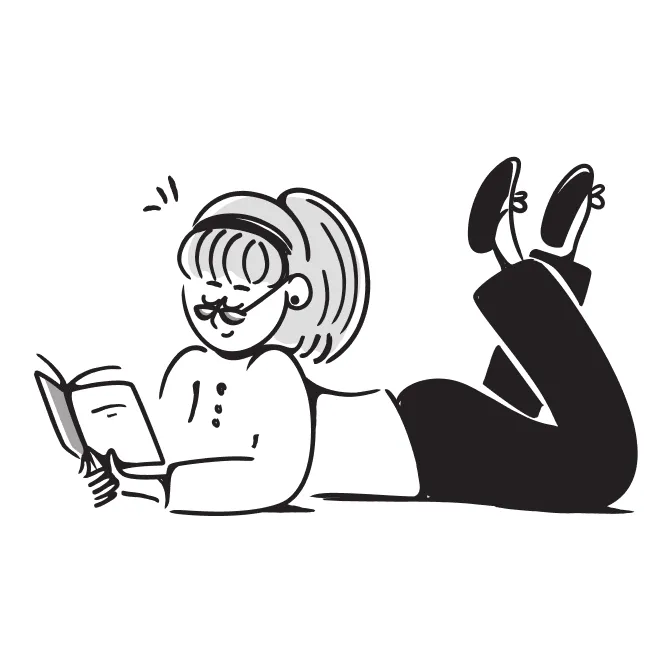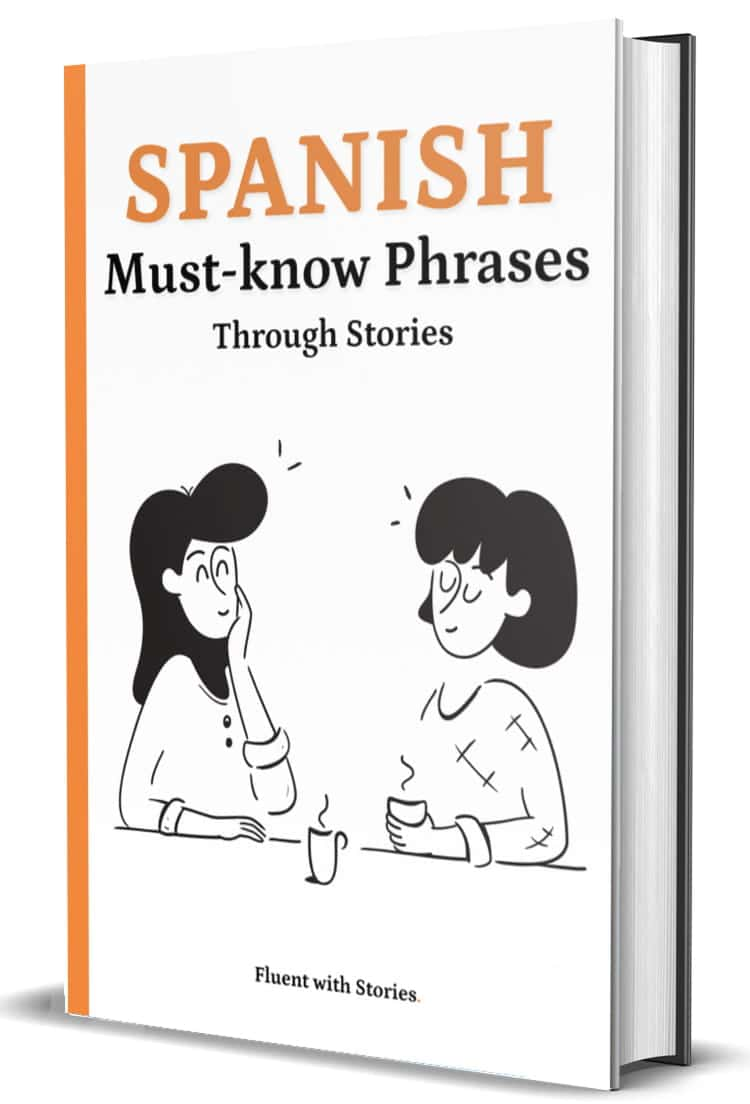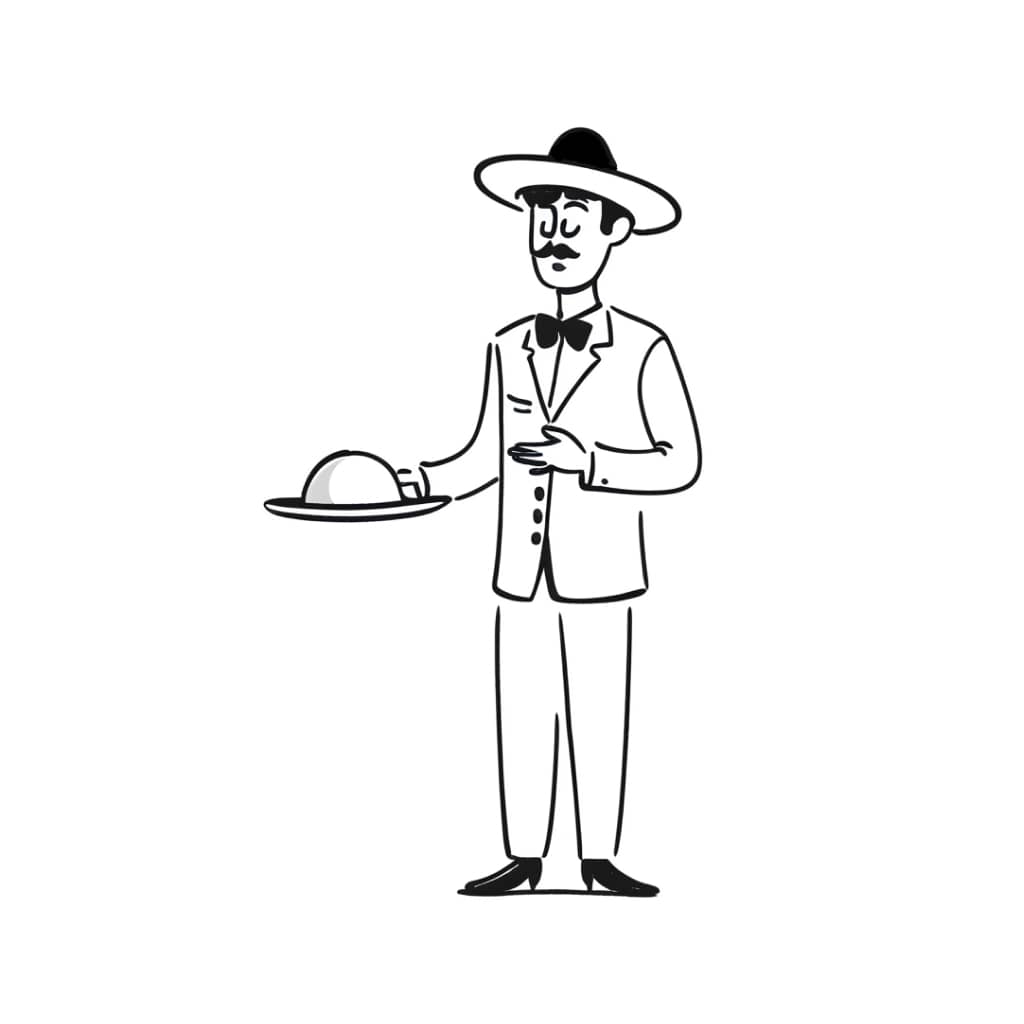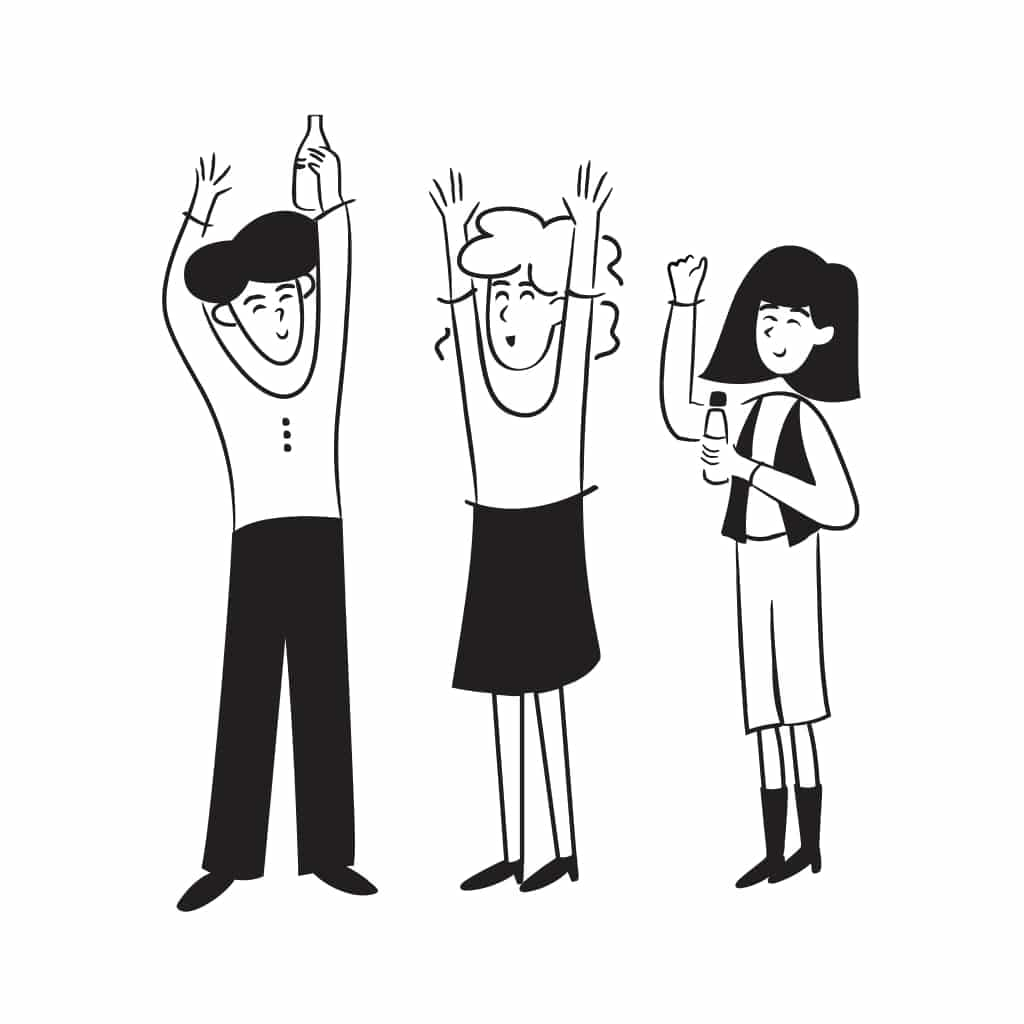This story was designed to help you learn Spanish in context, strengthen comprehension, and absorb vocabulary and grammar naturally through reading, listening, and interactive exercises. It includes a quizz, flashcards, and a writing practice to reinforce your skills. Here's how to maximize your learning:
- Listen and read the story
Play the audio while reading to follow the story naturally. Focus on understanding the main ideas and how the language sounds. The goal is to develop your Spanish listening skills and overall comprehension. - Read again with the translation
Turn on the translation and compare how ideas are expressed in Spanish and English. This builds awareness of Spanish sentence structure and grammar in real use. - Explore the key vocabulary
Below the story, you’ll find important words bolded and listed. This Spanish vocabulary list highlights key words and expressions in context and helps you understand what matters most in the story. - Take the comprehension quiz
Now test your understanding with the quiz. It reinforces the main ideas and helps improve your Spanish reading comprehension with instant feedback. - Review key vocabulary with flashcards
Use the flashcards to practice the vocabulary you just learned. This boosts memory through active recall and strengthens Spanish vocabulary retention. - Try the writing practice
Respond to the writing question related to the story. Use the new words and grammar to create your own sentences. This strengthens grammar and encourages you to think in Spanish. - Practice speaking out loud
Try saying full sentences out loud — or even read the whole story aloud if you feel ready. You can also speak along with the audio, matching the narrator’s voice as closely as possible. This is a great way to improve pronunciation and fluency while building your Spanish speaking confidence. - Review as needed
Come back to the story anytime to review vocabulary, grammar, or anything you found challenging. You can retake the quiz, replay the audio, or go through the flashcards again. Regular review helps reinforce what you’ve learned and build stronger Spanish skills over time.
Key Spanish concepts you'll encounter in this story
Grammar: Present tense verbs, Simple past tense, Expressions with "to be"
Vocabulary: Daily routines, Transportation, Work environment
Skills: Describing problems, Expressing emotions, Narrating a sequence of events
Spanish version
Carlos se despierta. Son las siete y media de la mañana.
Mira su teléfono y salta de la cama.
"¡Es tarde! Tengo una reunión importante a las nueve."
Sale de su apartamento y corre a la parada del autobús.
Cuando llega, ve el autobús que se va.
—¡Espere, por favor! —grita Carlos, pero el autobús no para.
Carlos llama a un taxi con su teléfono.
—Buenos días. Necesito ir al centro, por favor.
El taxista empieza a conducir, pero después de cinco minutos, el taxi no se mueve.
—¿Qué pasa? —pregunta Carlos.
—Hay mucho tráfico, señor. Hay un accidente —responde el taxista.
Carlos mira su reloj. Son las ocho y media.
—Voy a correr —dice Carlos.
Sale del taxi y empieza a correr por la calle.
De repente, cae al suelo y se hace daño en la rodilla.
Su pantalón ahora tiene un agujero y su rodilla está sangrando.
Llega a la oficina treinta minutos tarde, con el traje sucio, sudado y con la rodilla lastimada.
Su jefe, el señor Gómez, está muy enfadado.
—¡Carlos! ¿Dónde estabas? ¡Hemos perdido al cliente más importante por tu culpa!
—Lo siento mucho. He tenido muchos problemas esta mañana —explica Carlos.
—Eso no es una excusa. Estás despedido —dice el señor Gómez.
Carlos sale del edificio muy triste. Camina por la calle hablando solo.
—Soy el hombre con la peor suerte del mundo.
En ese momento, ve un quiosco que vende periódicos, cigarrillos, dulces y billetes de lotería.
Un titular llama su atención: "El hombre con la peor suerte del mundo".
Carlos compra el periódico y lee la historia de un hombre que sobrevivió a un accidente de tren, a un accidente de avión, a la explosión de su coche y a ser atropellado por un autobús.
Después de todos esos accidentes, él ganó la lotería.
Al final del artículo dice:
"La historia nos muestra que, a pesar de ser tan desafortunado, una persona también puede ser muy afortunada".
Carlos sonríe y dice al vendedor:
—Quiero comprar todos los billetes de lotería que tiene, por favor.
Spanish story with English translation
Carlos se despierta.
Carlos wakes up.
Son las siete y media de la mañana.
It's seven thirty in the morning.
Mira su teléfono y salta de la cama.
He looks at his phone and jumps out of bed.
"¡Es tarde! Tengo una reunión importante a las nueve."
"It's late! I have an important meeting at nine."
Sale de su apartamento y corre a la parada del autobús.
He leaves his apartment and runs to the bus stop.
Cuando llega, ve el autobús que se va.
When he arrives, he sees the bus leaving.
—¡Espere, por favor! —grita Carlos, pero el autobús no para.
"Wait, please!" shouts Carlos, but the bus doesn't stop.
Carlos llama a un taxi con su teléfono.
Carlos calls a taxi with his phone.
—Buenos días. Necesito ir al centro, por favor.
"Good morning. I need to go downtown, please."
El taxista empieza a conducir, pero después de cinco minutos, el taxi no se mueve.
The taxi driver starts driving, but after five minutes, the taxi isn't moving.
—¿Qué pasa? —pregunta Carlos.
"What's happening?" asks Carlos.
—Hay mucho tráfico, señor. Hay un accidente —responde el taxista.
"There's a lot of traffic, sir. There's been an accident," responds the taxi driver.
Carlos mira su reloj. Son las ocho y media.
Carlos looks at his watch. It's eight thirty.
—Voy a correr —dice Carlos.
"I'm going to run," says Carlos.
Sale del taxi y empieza a correr por la calle.
He gets out of the taxi and begins to run down the street.
De repente, cae al suelo y se hace daño en la rodilla.
Suddenly, he falls to the ground and hurts his knee.
Su pantalón ahora tiene un agujero y su rodilla está sangrando.
His pants now have a hole and his knee is bleeding.
Llega a la oficina treinta minutos tarde, con el traje sucio, sudado y con la rodilla lastimada.
He arrives at the office thirty minutes late, with his suit dirty, sweaty and with an injured knee.
Su jefe, el señor Gómez, está muy enfadado.
His boss, Mr. Gómez, is very angry.
—¡Carlos! ¿Dónde estabas? ¡Hemos perdido al cliente más importante por tu culpa!
"Carlos! Where were you? We've lost the most important client because of you!"
—Lo siento mucho. He tenido muchos problemas esta mañana —explica Carlos.
"I'm very sorry. I've had many problems this morning," explains Carlos.
—Eso no es una excusa. Estás despedido —dice el señor Gómez.
"That's not an excuse. You're fired," says Mr. Gómez.
Carlos sale del edificio muy triste.
Carlos leaves the building very sad.
Camina por la calle hablando solo.
He walks down the street talking to himself.
—Soy el hombre con la peor suerte del mundo.
"I'm the man with the worst luck in the world."
En ese momento, ve un quiosco que vende periódicos, cigarrillos, dulces y billetes de lotería.
At that moment, he sees a kiosk that sells newspapers, cigarettes, candies and lottery tickets.
Un titular llama su atención: "El hombre con la peor suerte del mundo".
A headline catches his attention: "The man with the worst luck in the world".
Carlos compra el periódico y lee la historia de un hombre que sobrevivió a un accidente de tren, a un accidente de avión, a la explosión de su coche y a ser atropellado por un autobús.
Carlos buys the newspaper and reads the story of a man who survived a train accident, a plane accident, the explosion of his car and being run over by a bus.
Después de todos esos accidentes, él ganó la lotería.
After all those accidents, he won the lottery.
Al final del artículo dice: "La historia nos muestra que, a pesar de ser tan desafortunado, una persona también puede ser muy afortunada".
At the end of the article it says: "The story shows us that, despite being so unfortunate, a person can also be very fortunate".
Carlos sonríe y dice al vendedor:
Carlos smiles and says to the vendor:
—Quiero comprar todos los billetes de lotería que tiene, por favor.
"I want to buy all the lottery tickets you have, please."
Master A1 Spanish with 120+ stories
Start using Spanish in real life with our complete story-based course.
Join the waitlist for exclusive early-bird pricing.
Join waitlist



























Comments section for language learners